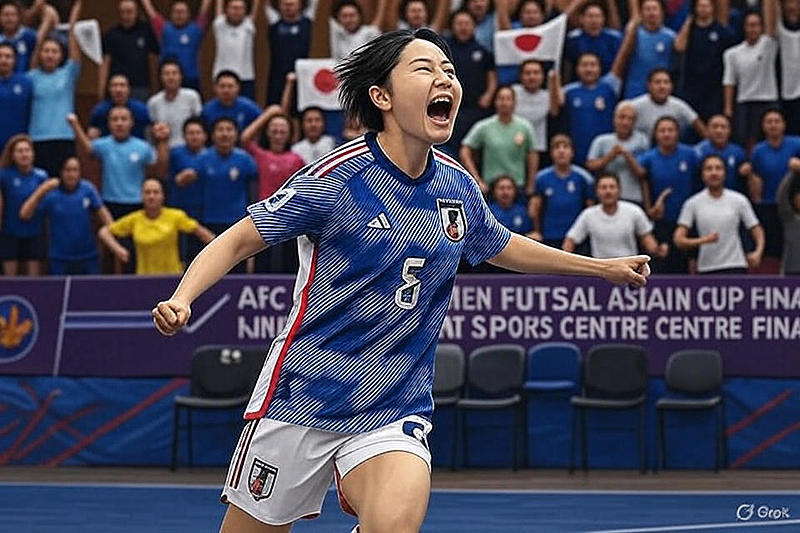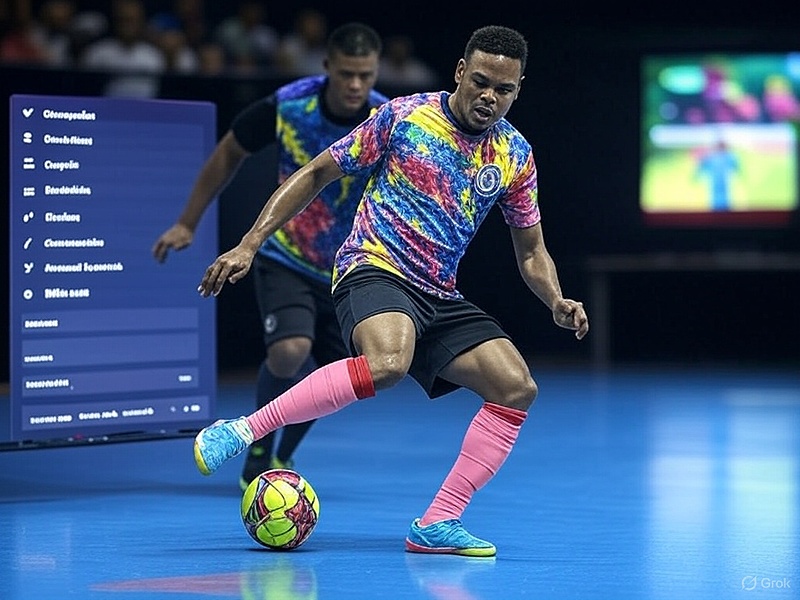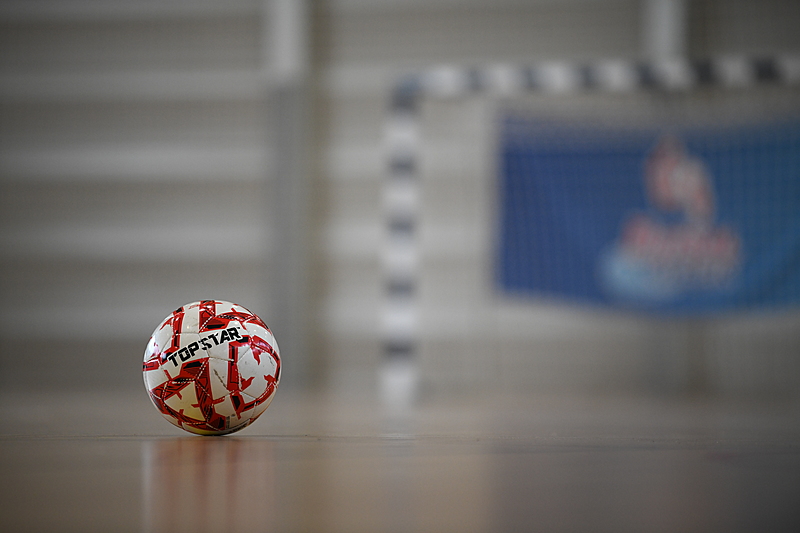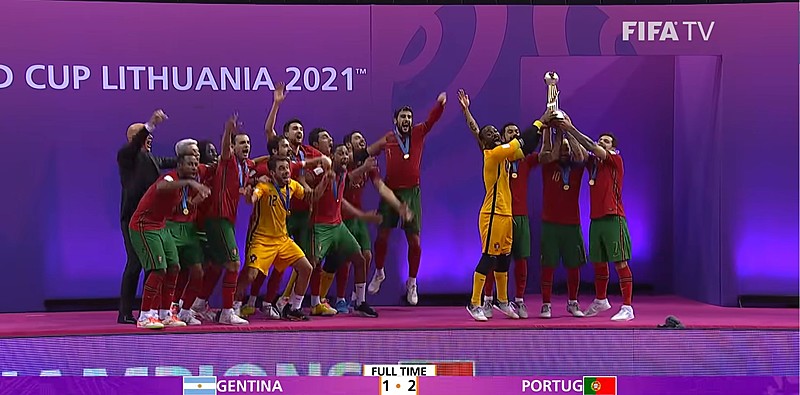Numerous times so far, we have mentioned that futsal is one of the fastest growing sports in the world. For some parts of the world this is true more than for others and luckily this is the case for Asia. We found our next futsal fanatic in the ‘Land of the Rising Sun’ at the far east of Asia and due to his enormous enthusiasm decided to have a long and informative talk about many futsal things regarding the biggest continent in the world.
We are very happy to welcome Steve Harris - the real one, not the Iron Maiden bass player - arguably one of the biggest online futsal influencers! The man behind a popular Facebook group ‘Futsal Japan’ and a very much followed Twitter account that ranked among our top 5 Twitter accounts you should follow is much more than just a futsal influencer though. Harris has been heavily involved in development of Japanese futsal while it was still in its infancy in the 1980s, a topic we discussed as well.
To this day, Harris keeps futsal community around the world updated with all important news from Asian futsal scene and with other essential futsal news. Asia, being a huge market, has an enormous potential for growth of futsal. However, its futsal community is still relatively small, compared to its size, to the wider public. We are pleased, though, that we had an interviewee who helps to facilitate the growth of the community there on a daily basis.
To start off our talk, we first wanted to let our readers get acquainted with Steve Harris and on how he got to the world of futsal? I grew up in the USA on a diet of the major American sports – which did not include soccer. Though I was passionate about sports in my pre-teens, my interests turned to music and Japanese language as I progressed through my teenage years and university.
When I moved to Japan (which turned out to be a permanent move) in 1980, I was an avid follower of sumo and baseball. Upon happening to see a football friendly between FC Santos and Uruguay (in Tokyo) in 1985, my attention shifted to soccer. I started to play recreationally and learn everything about the game I could. I had heard that a form of indoor soccer existed and called up the Japan Football Association (JFA) to ask about it. They referred me to Takao Sakae, who was instrumental in organizing futsal in Japan from the ‘80s to even the present.
I became quite fascinated by futsal and was drafted by Mr. Sakae into the Japan Minisoccer Association. This meant wearing many hats and starting to contact people in other countries. As I learned more and more about the sport, in the early ‘90s the Japan Minisoccer Association became the Japan Futsal Federation (JFF) and then some of us were selected as committee members of the JFA’s first Futsal Committee.
I continued to serve as a JFF director and JFA committee member until about 10 years ago. Having three sons to put through university necessitated me taking on two jobs – so no time for futsal during the 2008-2014 period.
When my sons graduated from university, I was able to reduce my work load but was no longer affiliated with the JFF or JFA. I was still very connected to the game and passionate about it, so I started the Futsal Japan group on Facebook in 2014 and later extended my presence to Twitter. I was astonished at how quickly the online futsal community found me. Since I choose my information carefully and try to contextualize it, maybe longtime futsal community members and newcomers to the sport find that information helpful.
At the same time, social media has provided me with innumerable sources of information and eye-opening insights. A very important fact that I would like to point out: though there were some great magazines at one time, futsal has been mostly dependent on the internet since it opened up to the public in 1994. Back in the ‘90s, it became possible to start providing and receiving futsal information that would not have otherwise been available. I created my first futsal website using Mosaic (I think) and it was a couple of years later that Mićo Martić and Luca Ranocchiari launched Futsal Planet, which was a pivotal moment in terms of bringing the global community together in one spot for the first time ever.
As you said earlier, you’re an American with a current address in Japan. In the meantime, you have become one of the leading experts on futsal in Asia and you administer an influential Facebook group Futsal Japan, in addition to your Twitter account, which was ranked among the Top 5 Twitter accounts that you should follow on our website. Can you tell our readers a bit more about these projects and how challenging it is to find news on Asian futsal? My original intention had been to disseminate English information about futsal in Japan, which is obviously easily available to me. My “day job” is Japanese-to-English translation so I have no problem monitoring the futsal scene here in Japan.
As I started posting in the Futsal Japan group, the response was strongest from other countries in the AFC (Asia Football Confederation): Australia, Thailand, Vietnam, Indonesia, etc. Response from Iranians has also been strong but Telegram and Instagram are the preferred social media platforms there, so quite a few of the Iranians who I have connected with live outside of Iran.
There is A LOT of information about futsal available. The more I posted, the more information I got back. I found myself drawn into an arena of information sharing that went beyond Japan and Asia: information about futsal connects together and forms a global network. After a while, I realized that posting about futsal globally is as important as posting about futsal locally. The personal challenge for me is how to add extra value – and this means drawing on my experience and knowledge (which is by no means complete and is being updated on a daily basis).
Getting back to the original question about the challenge to find news on Asian futsal, it really is no challenge at all. In just about all countries there are online media that report daily on the sport. And in my own case, I’m fortunate to have many friends who contact me personally to make sure that I have not missed a certain story. I would be completely useless if I did not have their help (and online translation!)
You have been involved in development of futsal in Japan basically since the beginning. The national team had some success clinching the AFC Championship on three occasions, but what can you tell us about the current state of development of the national league and its clubs? Japan's national team and F.League continue to be gold standards in Asia. The skill of the players and quality of the play are superb – despite futsal continuing to be a sport in which it is very difficult to make a living. Some of our best players have to hold down day jobs while they pursue futsal as merely a passion, which is really quite extraordinary.
When the current national team coach Bruno Garcia took charge after the 2016 World Cup qualification debacle, he pointed out the need for greater opportunities for younger players in the 20-25 year old segment, who tend to be victims of a cultural system of seniority that permeates Japanese culture. In Japan, younger people tend to defer to older ones. This means that younger players, even if they have potential, are relegated to the bench more than the older ones. This is obviously a barrier to achieving a seamless development continuum.
Otherwise, Japan's futsal scene continues to be robust. The U-20 team won gold at the AFC U-20 Championship last year, defeating Iran in the process and then Afghanistan in the final. And the women's national team has taken silver twice at the AFC Women's Championship, while the U-18 women were runners-up at the Buenos Aires Youth Olympic Games.
Economically, futsal teams and players in Japan have to walk a tightrope, but on the pitch they continue to be frontrunners in Asia.
The 2020 AFC Futsal Championship in Turkmenistan has come to an expected delay due to the COVID-19 situation. Nevertheless, this championship will be held later on. What are your expectations on the five teams that will progress to the World Cup? Japan shocked the rest of Asia by failing to qualify for the last World Cup in 2016. Vietnam achieved an amazing upset over Japan and won a place at the big show, which meant that the AFC’s top 4 (Iran, Japan, Uzbekistan, Thailand) were missing one member.
Barring any major upsets this time, I anticipate that the top 4 will be present at Lithuania, which leaves open the fifth berth. Vietnam can once again be considered a favorite to win that berth, but Lebanon has been performing quite well of late. Kuwait brings considerable experience and Indonesia, though still considered a newcomer, has demonstrated an unpredictable type of explosive momentum. Don’t write off Kyrgyzstan either.
Forecasting anything at the moment is very difficult because of the many variables. Societal instability has cast a shadow over the game in Lebanon. Iran has also had difficulty holding training camps and finding teams to play. A major player in Kuwait is in the process of recovering from an ACL tear, etc.
In the history of the AFC Futsal Championship we only have had two winners (Iran and Japan). Is there potential in AFC national teams to change this so that there are more diverse champions in the future? If yes, could you name some? Uzbekistan has come very close to taking the title and Thailand certainly has the potential. I would not be surprised at all if either of these teams claim their first gold medal this time.
Let’s take a wider look at AFC futsal. Obviously, we have our aforementioned powerhouses, but could you point to some ‘dark horse’ of the continent, or a country that has invested a lot lately to push itself among top teams in Asia that we have to look out for in the future? Vietnam will continue to develop and eventually become one of the top 5 teams in Asia. Indonesia has a massive population and intense public support for futsal. I would be very surprised if they are not represented at the World Cup over the next eight years. Malaysia could develop similarly.
Afghanistan is sort of like a little brother to Iran. About half of the players are refugees in Iran and have therefore grown up in the system there. The players demonstrate characteristics very similar to Iranian players. At the same time, they have intense pride in representing their own country.
I was surprised that Iraq did not qualify for the AFC finals this time. There could possibly have been internal problems I do not know about. I’m told that Saudi Arabia, Oman and Bahrain have very strong street-soccer cultures that could potentially produce some monster players. I guess it will depend on whether the local organizers can harness and develop that talent.
Continuing on this, what do you feel is the biggest obstacle that hinders further and faster futsal development in Asia? As for obstacles that might hinder futsal development, the only thing that comes to mind are FIFA member associations (FAs) that are failing to support futsal properly.
In this qualifying cycle for the World Cup, we saw Australia (unsuccessfully) participating in the Southeast Asia qualifiers (first round) and Solomon Islands qualifying for the World Cup as the sole representative of the Oceania region. Your thoughts on this: wouldn’t it be more beneficial for Australia to participate in OFC qualifiers rather than in a very strong competition in Asia, especially having in mind a very competitive Southeast Asia Group? The national team program in Australia has been de-funded by the FA there. It is a crime and a scandal. I can only hope that the AFC initiates an investigation, prosecutes the guilty parties, and makes sure that the Australian FA serves its mandate from FIFA to develop all forms of FIFA football. Member associations of FIFA are obligated to take part in competitions organized by FIFA.
By the way, Australia belonged to the OFC until not very long ago. Their move to the AFC has been a win-win for Australia and the AFC. Once there is again proper support from the FA, Australia will be one of the better teams in Asia.
U.S. futsal has seen a lot of development lately. We already discussed this topic with U.S. futsal head coach Dušan Jakica and assistant coach Otto Orf about the intricacies of U.S. futsal. Having your experience and knowledge of Asian futsal, do you believe some of the lessons learned in Asia are applicable for the future development of futsal in U.S. and do you believe that it is (finally) time for U.S. to take a big step forward in this sport? Like the Australia FA (FFA), US Soccer is a FIFA member association mandated with the task of supporting and developing all forms of FIFA football. By failing to properly support futsal, they are in violation of their obligation as a FIFA member association and should be chastised and threatened with punishment unless they fulfill their responsibility. Once US Soccer gives futsal the attention and support it deserves, the US will once again be a formidable presence in world futsal.
That sums up our quite educational conversation with Steve Harris about futsal in Asia. Many interesting theses have been laid down for future discussion and we encourage you, our dear readers, to let us know your opinion on some of them in the comment section below or on our social media channels. Thanks Steve and keep up the good fight of futsal fanaticism!






